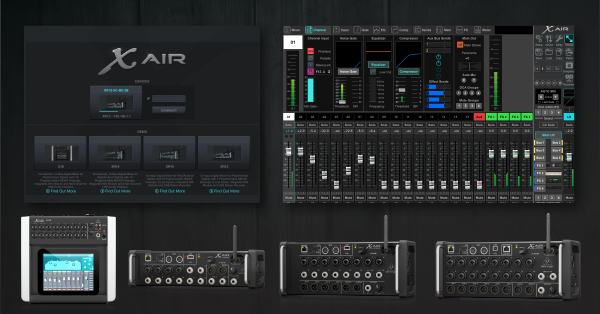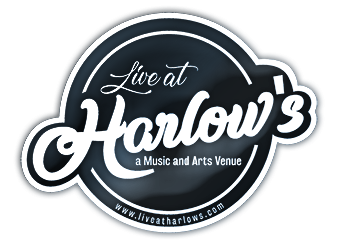


Female Singer Application

Pro Tip #20: Ways to Support Your Local Music Scene During Quarantine
From Ken Kirkland
COVID-19 is infecting our health and our wealth. That might not be too big of a deal to Wall Street and large corporations but for us normal working-class musicians and venue owners it definitely is.
Musicians who put all their work and money into touring and playing shows have had to cancel gigs and don’t get that money back. Small venues, new and old, which give these working bands a home have also had to close their doors. It’s starting to feel like the coronavirus is more likely to kill the music scene than the people in it.
It’s our duty as fans to help out as much as we can to save our beloved music scenes. Whether that’s here in the wiregrass or in the Florida panhandle, there’s still ways to keep the scene from going broke.
Streaming music on Spotify is an easy way to throw your favorite band/artist a few extra bucks. They don’t make very much but if you hit your mute button and play their album on repeat every night, that’s still a little something that can help them out.
Another obvious way to help is to buy their merch. Selling merch is where a lot of bands make most of their money, so buy their shirts, vinyl, pins, whatever. And if you can, leave them a little tip as well. You can also just straight-up Venmo or cashapp your favorite band/artist a donation to help keep them afloat. If they haven’t already provided a Venmo/cashapp account for fans to reach out and help, I’m sure no one would be opposed if you reached out via Twitter, Instagram/Facebook messenger, or email about it.
Many venues also have their own merch, as well as Venmo/cashapp accounts you can donate to. Also buying advance tickets could be vital to small venues currently taking a huge hit in profits due to this outbreak. Who knows, maybe that ticket you buy for that show in September is the one that helps them make their rent this month?
Because of self-quarantining, live shows had to adapt. It’s irresponsible right now for obvious reasons to attend a live show but that doesn’t mean you can’t see one. Musicians are throwing “virtual” events on their social media outlets like Instagram or Facebook live and providing a Venmo/cashapp account for you to donate instead of paying the door or dropping cash in the ole tip jar.
New ideas on how to keep our local scene alive during quarantine are still popping up. It’s awesome to see our music community come together whole heartedly during this crisis. If you have any ideas don’t be afraid to make it happen. And don’t forget, posting about and giving exposure to your fellow bands and artists is always helpful. Share their stuff.
That’s all I got. I will say this though, our wiregrass area community of musicians is strong. We’re a bunch of badass’s who will survive this. I 100% can not wait to see all you guys and gals again. I love y’all, stay safe and don’t forget to wash your freakin’ hands!

Pro Tip #19: 10 Tips To Becoming A Professional Musician
By Sam Wilder
So you always wanted to be a professional musician? See your name in magazines, your band logo on album covers or postered all over town, hear your songs on the radio, and don’t forget that rock star life you dream of. But without a doubt there are a ton of challenges on the path to becoming a professional musician. Here are some tips to help you reach your goal.
1. Practice, Practice, Practice
Let’s start with the obvious. If your dream is to be the next Van Halen or Satriani but your legato or tapping techniques leave a lot to be desired. Or you are an aspiring drummer who doesn’t know diddley about mastering their paradiddles. Don’t worry! Whether you’re a beginner or advanced you can always progress with regular practice or with the help of an experienced instructor.
2. A Little Patience
The ability to play complex melodies, difficult chords or super fat grooves right off the bat is pretty rare. So it pays off to have patience… especially with yourself. This includes the boring repetitive exercises of going up and down scales or playing that solo over and over for the millionth time to nail that perfect take. Keep in mind that all your idols went through the same process.
3. Perseverance
The previous tip leads us to another good one, perseverance. Set your goals and stick to them. Real pros do not throw in the towel in the face of adversity. While others become dissapointed when problems come up you will be already looking for solutions to move forward.
4. Handling Criticism
As a budding musician, you’ll need “thick skin” to deal with comments and criticism from fellow musicians as well as the general public. They will always have an opinion and different tastes than yours. But Pros know how to use criticism and make it constructive, whether from fans, critics or crappy comments on social media.
5. Guidance
Seeking guidance in a mentor is often critical for growth as a musician. A mentor should be someone who already reached the goals you have set and may often have the relevant advice and contacts you need. Not only will they be able to tell you what works or not, they’ll know all about a musician’s life on stage and in the studio saving you from numerous career disasters.
6. The Pursuit of More
As a professional there’s a lot to learn. Not only in terms of musical skills and theory, but also in the basics of business related issues. Although it’s best to have an expert repair your equipment or get a lawyer for legal issues, a little know-how in these matters as well as promotion know-how can be super helpful.
7. Handle With Care
As my momma always said “take care of your stuff”! A professional musician is aware of the importance of their investments, their equipment, their accessories and the maintenance of all of it. This ensures that their instruments are always ready for use and are reliable for years to come. For example learn how to change your strings, make minor neck adjustments and for the love of God buy a guitar stand. Nothing hurts more than watching your favorite axe crash to the ground because you leaned it against your amp.
8. Be Prepared!
If you’re well prepared for rehearsals, shows and recording sessions you’re already thinking and acting like a pro. And even if you can’t predict everything in advance, it’s a good start. Is there a new set of guitar strings ready in the rehearsal room? Do you carry spare batteries for your wireless system? If so, you’re on the right track.
9. Punctuality
Punctuality is a true professional trait. Arriving ahead of time at the rehearsal room is an indication that you take your professional goals seriously. This is a quality often overlooked by amateurs and it’s certainly not advisable to start in this business with a bad reputation.
10. The Courage to Take Risks
Between all your practice, planning and preparation you should always be willing to take risks. No need to stage dive off the lighting rig or subs but a bit of madness and surprise always pumps up the crowd. An improvised solo, an open jam session, a perfectly timed scissor kick, whatever. Just do your thing!

WHY BANDS PLAY THE SAME OLD SONGS
By anonymous local area musician
Why do bands play the same old tired covers? Lazy musicians? Over the years, I have been surprised at how many musicians cannot put in the time to learn a tune. It could be that they don’t have time, don’t have the ability, don’t want to learn one for whatever reason. Maybe they think they can wing it? In the end, they don’t learn the tune so we have to punt and do a tired old cover instead because everyone already knows it.
There’s lots of older, experienced musicians who still play the same stuff that they played decades ago and think that Bon Jovi is modern rock. There ARE guys who think they can wing it, and it can work until you get the bridge that follows a different chord progression. There’s guys who think a song is just 3 chords, so they don’t bother to learn the harmonies, dynamic changes, etc. because they think it’s easy. Yes, it’s easy, but you can still suck at it. There’s players who don’t even touch their instrument outside of a practice or gig. I can go on and on about the various issues but it still comes down to effort. There’s lots of musicians who won’t put in the effort.
Luckily, in my current band we have folks who will actually learn a tune. What I’ve learned is that there’s lots of covers that aren’t being played that go over really well. It’s just that you need to spend a little time listening to the song and learning it. It’s usually not a tune you learned in the garage 20 years ago. No one specifically requests Brown Eyed Girl, Mustang Sally, Sweet Home Alabama, and lots of other tired covers from my band. Although we could do those songs none of them go over as well as the songs that lots of cover bands don’t do that we do.
And outside of my band I’ve seen several examples too. Although ‘American Girl’ and ‘Free Falling’ by Tom Petty go over well, so does ‘Running Down a Dream’ and ‘Don’t Do Me Like That’. The way bands cover Aerosmith, GnR, Led Zeppelin, Beatles, Skynyrd, and other iconic Classic Rock Bands you’d think they only had 2-3 hit songs. But they actually had a bunch of them. To many bands gravitate towards the 1-2 easiest songs they do. And even though Steely Dan had a bunch of radio hits, very few bands play their material because it takes some effort to learn. Actually, there’s lots of hit songs that would go over well that are left on the table because people won’t bother learning them.
Musicians tend to put a lot of blame on the audiences talking about how much they like these songs. Sure they are part of the equation but I don’t believe that it’s the majority of the problem. The tired covers are like McDonalds. People eat there because it’s convenient, cheap, and they know what to expect. But, it’s rarely their favorite place to eat. I’ve heard plenty of musicians complain about unresponsive audiences, but if you’re being lazy they will pick up on that. Expecting audiences to be passionate about your lack of enthusiasm is pretty narcissistic and unrealistic in my opinion. Although I’ve seen some “non-tired” covers clear a dance floor I’ve also seen many of them work out well and I feel like they are worth doing. A song can be a hit, recognizable, and easy to dance to without being one that every band does.
